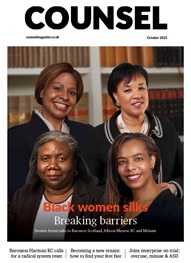*/
Lord Hoffmann has spoken out against Law Commission proposals to help individuals seek redress against public bodies.
Currently, individuals must establish that the public body owes them a specific statutory duty or is in breach of a duty of care at common law before bringing a claim for loss. In January 2009, the Law Commission proposed abolishing this and instead letting individuals claim compensation if the public body has been “seriously at fault” in the exercise of its powers—an entirely new concept in English law.
In a speech on “Reforming the law of public authority negligence”, Lord Hoffmann said: “I think that is an absolutely terrible idea and I hope it will be quietly dropped.” Creating such a liability would add to the financial burdens on the public body. Moreover, public bodies must make choices about spending priorities, therefore asking judges to decide on these choices would be inappropriate, he said.
Lord Hoffmann has spoken out against Law Commission proposals to help individuals seek redress against public bodies.
Currently, individuals must establish that the public body owes them a specific statutory duty or is in breach of a duty of care at common law before bringing a claim for loss. In January 2009, the Law Commission proposed abolishing this and instead letting individuals claim compensation if the public body has been “seriously at fault” in the exercise of its powers—an entirely new concept in English law.
In a speech on “Reforming the law of public authority negligence”, Lord Hoffmann said: “I think that is an absolutely terrible idea and I hope it will be quietly dropped.” Creating such a liability would add to the financial burdens on the public body. Moreover, public bodies must make choices about spending priorities, therefore asking judges to decide on these choices would be inappropriate, he said.


Justice system requires urgent attention and next steps on the Harman Review
Q&A with Tim Lynch of Jordan Lynch Private Finance
By Marie Law, Director of Toxicology at AlphaBiolabs
By Louise Crush of Westgate Wealth Management
Why Virtual Assistants Can Meet the Legal Profession’s Exacting Standards
Despite increased awareness, why are AI hallucinations continuing to infiltrate court cases at an alarming rate? Matthew Lee investigates
Many disabled barristers face entrenched obstacles to KC appointment – both procedural and systemic, writes Diego F Soto-Miranda
The proscribing of Palestine Action under the Terrorism Act is an assault on the English language and on civil liberties, argues Paul Harris SC, founder of the Bar Human Rights Committee
For over three decades, the Bar Mock Trial Competition has boosted the skills, knowledge and confidence of tens of thousands of state school students – as sixth-form teacher Conor Duffy and Young Citizens’ Akasa Pradhan report
Suzie Miller’s latest play puts the legal system centre stage once more. Will it galvanise change? asks Rehna Azim